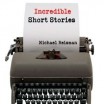WAYB competition ~ a few tips to get you onto that short-list

The Writers’ and Artists’ Yearbook short story writing competition closed on St Valentine’s Day and so began my task of selecting the short list. The estimated 900 entries grew to over 1200 – that’s a pile of paper over two feet high if you’re wondering – and so I settled down to read and read and, well, read some more.
And I loved it. Short story writing must be the hardest discipline. To create a situation, to establish characters, and to devise a conflict which has to be resolved in 2000 words takes skill and imagination.
The theme of compulsion was interpreted in countless ways: many entrants explored a compulsion with food, shopping, murder, child abuse, blackmail, an obsession with numbers or with words, enchantment and magic; curiously, magpies featured in several stories.
I can promise you, I read every entry and thoroughly enjoyed it but I have to say, some were easier to read than others. So, if you weren’t successful this time, may I offer a few very basic tips that might help you to make it onto that next competition short-list?
1. Nothing is more dispiriting than settling for a jolly good read only to be put off by poor layout and a type too small to read comfortably. Start by making your short-lister’s job painless by choosing an easy-to-read font size. Anything typed in 10pt or less is going to be difficult and tiring to read; 12 or 14pt is ideal. Don’t go to the other extreme and choose anything larger – it will just seem all ‘shouty’ and loud to your reader.
2. Having decided on your type-size, choose your typeface. Now, it’s very tempting to go for something flamboyant or unusual, something that you think will grab your judge’s attention, but you run the risk of sending them straight to the next script. Anything too fancy will be tiresome to read, so forget Curlz or Giddyup or Mistral and stick to a font which is easy to read: Times Roman, Helvetica, or Gill Sans will do fine.
And whichever font you choose, use only the regular face. Don’t type your entire story in bold (again, too ‘shouty’) or italic (too urgent). Use bold and italic sparingly, to increase their impact. And never, ever type everything in capitals – that’s just weird.
3. Next make sure your line spacing is set to at least one-and-a-half lines or even double line spaced. Dense grey text, especially if your typeface is on the small side, looks blocky and is again off-putting and difficult to read; don’t be afraid of letting some white space between the lines. Set your page margins so there are a couple of centimetres at the top and the bottom of the page, and the same at either side.
4. I can’t even begin to suggest how you how to write a short story, but I will advise you make every word count. Try to be as original as you can and avoid wasting your precious word count on clichés and tired phrases; too many times I was told that the darkness was an enveloping cloak and that the cold cut like a knife. Go for the unusual; be original.
5. One exclamation mark makes the point perfectly well!!! You don’t need to poke your reader in the chest typographically. And one question mark is sufficient too, y’know??? Your reader will know what you’re saying.
6. Unless you are very skilled, avoid writing in dialect – if your reader is unfamiliar with it, it may be difficult for them to understand. You want to keep them reading to the very end, not lose them half way through because they can’t follow your story.
7. If time allows, once you have finished your story, save it and leave it alone, forget all about it. After a week or so, go back to it and read it as if for the first time. Be honest and self-critical. Does it hang together? Does it make sense? Have you left a vital piece of information out? Have you left any loose ends? Are you as happy with it as you were when you finished it? Probably not; you will probably want to give it a bit of a tweak and a polish. If nothing else, it will give you the opportunity to correct any glaring spelling, punctuation or grammatical mistakes you have missed – and believe me, no matter how thorough you think you have been there will be some!
But at the end of the day (what was that I was saying about clichés?), it is the story that matters, of course, but if you didn’t make it this time, I hope the above may give you the edge to make it onto that next writing competition short-list.
Jude
PS Click her for 2011's winning entry in the Writers & Artists Short Story competition
Many thanks for the helpful tips.
With regard to:"Tips to get you on the Short List" . It was helpful to know what you expect in layout. I read all the tips with interest and hope to implement them.
As far as last year's winning story goes I waited in vain for the dénoument. Obviously I failed to understand the piece since I could see little connection between its contents and the title. Maybe I have a strange mindset for to me the character sounds rather boringly "pi" and lacking in fascinatinging characteristics. I was not tempted to re-read the story though obviously I had to study it several times before I felt justified in commenting upon it..
Thank you for posting these tips. I especially like tip 7.
I am a newcomer and hope to enter this years competition. It will be my first attempt at writing for something other than my own guilty pleasures. I look forward to it.
Rebecca